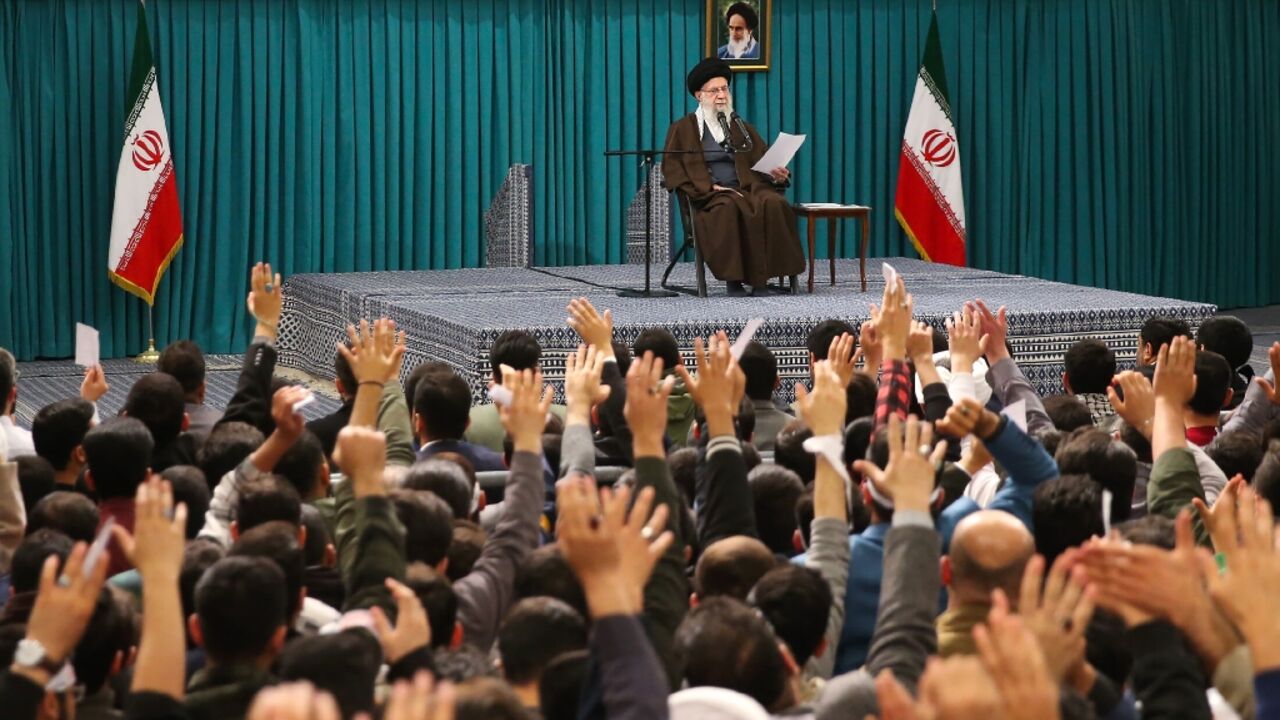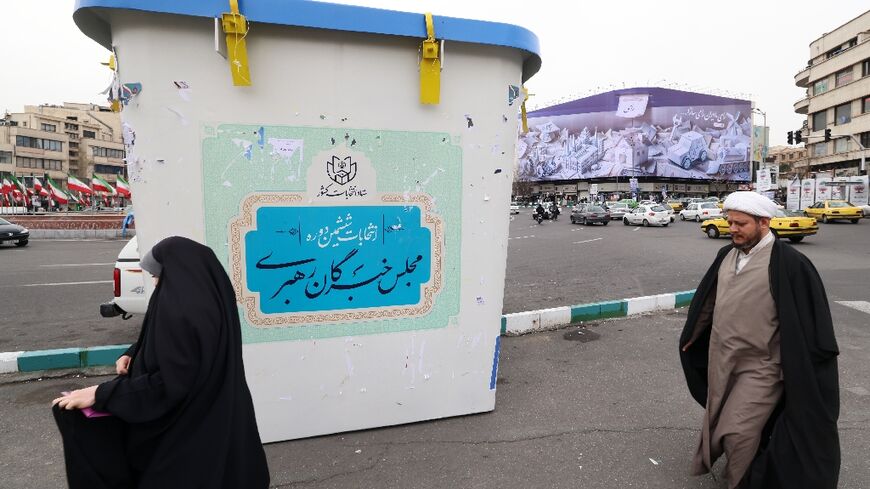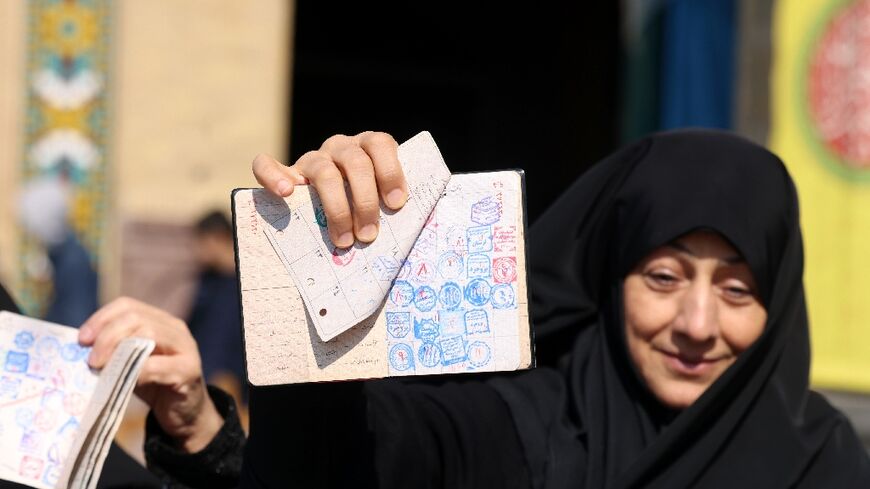Khamenei rallies Iranians to vote Friday in show to 'enemies'

Iran's supreme leader urged voters to come out in droves on Friday and show the foes of the Islamic republic a "strong and fervent" election process for parliament and the key Assembly of Experts.
"The enemies of Iran want to see if the people are present" on polling day for the 290-seat legislature and the 88-member Assembly, Ayatollah Ali Khamenei said on Wednesday.
If citizens fail to cast their ballots in large numbers, the 84-year-old supreme leader warned in an address to first-time voters, Iran's enemies "will threaten your security in one way or another".
Khamenei is expected to be first to cast his ballot at 8:00 am (0430 GMT) on March 1 for the unicameral legislature and the Assembly of Experts which appoints the supreme leader, a post he has held since 1989.
The vote is being held at a time Iran's arch enemy Israel is fighting the Tehran-backed Palestinian armed group Hamas in Gaza following the October 7 attack.
The conflict has drawn in other Iran-backed armed groups, including Lebanon's Hezbollah and Yemen's Huthi rebels.
Khamenei named the United States, other Western powers and Israel as the enemies of Iran, whose economy has been hit by tough US sanctions over the country's contested nuclear programme.
The vote comes amid mounting economic difficulties and as Iran grapples with the aftershocks of months of mass protests triggered by the 2022 death in custody of Iranian Kurdish woman Mahsa Amini.
- Conservatives vs reformists -
Iran's powerful conservative and ultra-conservative forces are expected to tighten their hold on power over the weakened reformist camp, many of whose candidates were not allowed to run.
Moderate former president Hassan Rouhani said he was barred from seeking re-election to the Assembly after 24 years of membership.
On Wednesday, Rouhani said the election "should be a protest vote" for those who are opposed to "current conditions and seek transformation".
Another former Iranian president, the reformist Mohammad Khatami, was quoted as saying this month by the conservative Javan daily that Iran is "very far from free and competitive elections".
Their statements fell short of directly calling for a boycott, unlike those of some opposition figures and members of the diaspora.
A coalition of parties called the Reform Front has said it would not take part in "meaningless, non-competitive and ineffective elections".
Hopefuls had to be vetted in order to be allowed to stand.
Jurists in charge of the process approved a total of 15,200 hopefuls -- less than one third of the 49,000 who registered to run for parliament, Iranian media reported.
A total of 144 candidates have been approved to run for seats in the assembly, for eight-year terms.
More than 61 million out of Iran's population of more than 85 million are eligible to vote. But some analysts predicted low turnout after a state TV poll found more than half of respondents were indifferent to the elections.
- 'Cold atmosphere' -
The reformist Ham Mihan newspaper this week alluded to recent heavy snowfalls and judged in a headline that the political "atmosphere remains cold".
The conservative Vatan-e-Emrouz daily by contrast hailed what it called the population's "interest in the candidates' electoral campaigns", which began on February 22.
Iran's current parliament was elected in 2020 during the Covid pandemic, with a voter turnout of 42.57 percent -- the lowest since the 1979 Islamic Revolution.
In Tehran, fewer than 20 percent of eligible voters cast their ballots that year.
Friday's elections will be the first since the protests triggered by the death of 22-year-old Amini in police custody.
She had been arrested for allegedly flouting Iran's strict dress code for women.
Many in Iran have been struggling to make ends meet as they grapple with soaring inflation and a record depreciation of the rial against the dollar.
"There has been a lot of pressure on people lately as prices have risen dramatically," said 40-year-old Tehran housewife Masoumeh. "I don't think the new parliament can change the economic situation."










